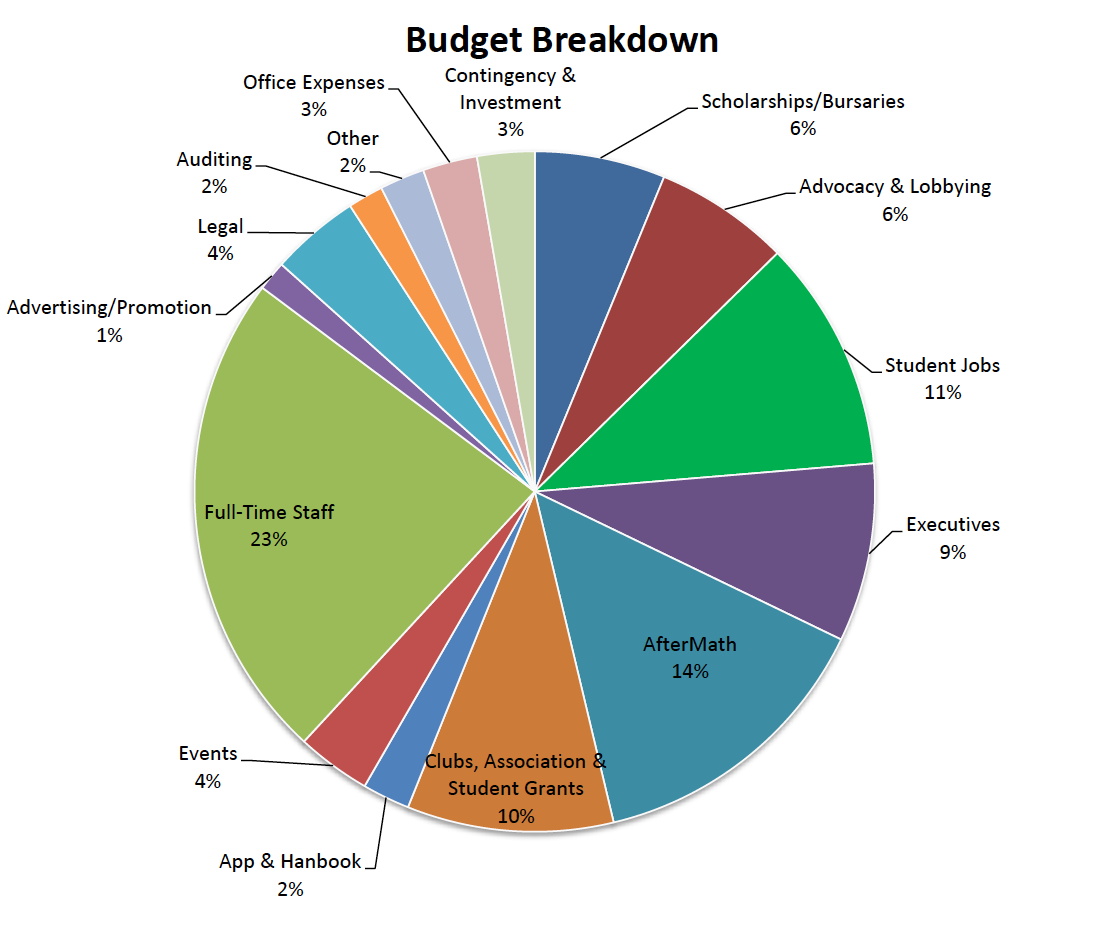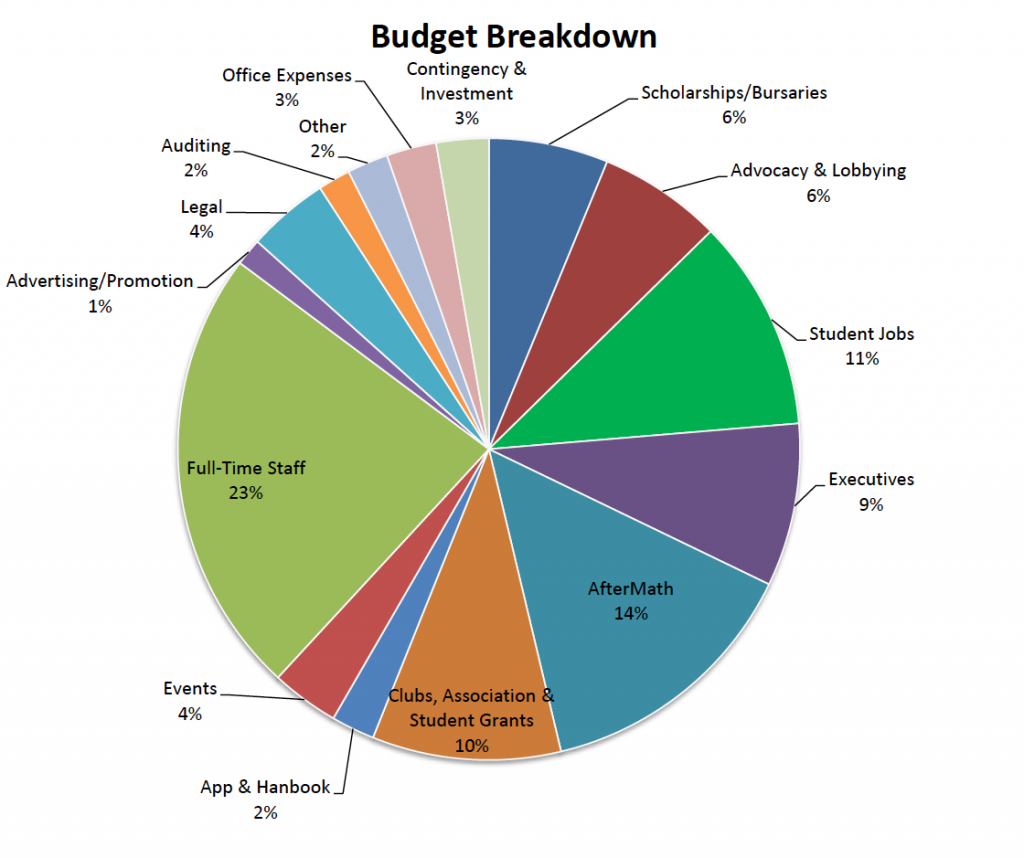By Katherine Gibson (The Cascade) – Email
Print Edition: March 26, 2014
On March 19, incoming president Ryan Petersen chaired SUS’s annual AGM. SUS worked to make sure the meeting was accessible to all students, linking the meeting to the Chilliwack campus through a microphone.
Opening the meeting on a positive note, outgoing VP internal Greg Stickland spoke to the general accomplishments of the SUS board over the last term. Highlights included a new board reform, the launch of the Abbotsford-Chilliwack campus connector shuttle, and the start of construction of the new student union building.
Outgoing VP academic Kristianne Hendricks spoke to the activity of the advocacy committee. Hendricks explained the group’s role in re-establishing SUS’s membership with the Canadian Alliance of Student Associations (CASA), establishing the SUS food bank, and removing the $5,000 vehicle cap for student loan eligibility.
Hendricks also noted that the advocacy committee helped formalize the new Alliance of British Columbia Students (ABCS), explaining that, although it initially started with five schools, the lobby group now represents nine schools and 165,000 students.
Operational budget approved for 2014-15
Speaking to the proposed operational budget, Davies noted that the creation of this financial plan had been drafted by a group of “diverse” individuals, explaining that both SUS directors and members of the UFV community at large had been involved in its creation.
Notable changes to the budget include an increase for spending in both student services and clubs and associations.
“We’ve managed to increase spending on student services by about $2,700 … to $438,000 … which is the highest level ever,” Davies explained. “We’ve also got the highest level of clubs and associations funding since 2010-11.”
Davies noted that this budget has made room for new student jobs on campus, noting that there was funding for just over 30 jobs in total.
“We have a variety of officer positions,” Davies said. “We have those jobs, jobs in our offices, and jobs in Aftermath. There are lots of different student jobs that we are offering through this budget.”
One significant change in the SUS revenue is the removal of $14,750 that used be counted from UFV’s soft drink contract with Coca Cola. As Davies explained, the contract is expiring, and therefore, SUS must wait to see what happens with the contract before it can formally account for the money in their budget.
During Davies’ presentation, one student questioned why the Aftermath budget line was not broken down further, noting that there was no specific acknowledgement of how much went to each avenue of the lounge’s operations.
Davies responded by explaining that there was a comprehensive budget created to come up with the $100,000 subsidies required for the society. However, it was not included in the SUS budget because it was beyond the scope of what it entails.
After little discussion, the 2013/2014 operation budget was passed unanimously.
Proposed change to $10,000 scholarship voted down
During the meeting, BCSA president Jennifer Martel spoke to a motion that would require SUS to break the proposed $10,000 entrance scholarship into two separate awards. Although recognizing the effort and time that has been put in by rep at large Thomas Davies and the rest of the SUS board, Martel still questioned the validity of giving such a large amount of money to one student.
“I think it’s amazing that SUS has proposed a scholarship … but [I feel] that it could be better used if it was split so that more than one student could benefit from it,” Martel said. “Because our tuition at UFV is lower … the amount that it add[s] up to is more than tuition, more than books, and [I] don’t think that it should necessarily [be] covering living cost.”
Addressing Martel’s concern, Davies noted that should the scholarship now be changed, SUS would be forced to face not only extensive revisions to the scholarship itself, but also potential issues with legality.
“If we decrease [the scholarship] there are two issues. One, you can’t simply just change the scholarship. There are months of back work which we have had to do to create this,” Davies said.
“And two, we are also in a very difficult legal position, as we have to go through the university for this scholarship,” he said. “To breach that agreement would be very damaging on multiple fronts and frankly is not a good move for the society — it puts us in a very bad position.”
When put to a vote, this motion was defeated, 11 people voting against it and seven people voting in favour, leaving the $10,000 as it currently stands — as one large entrance scholarship.
Proposed changes to bylaws raise question of democracy
Another lengthy discussion followed concerning the process of submitting motions for discussion by the board.
As a part of the conversation, Martel proposed an amendment that would strike bylaw 13.3 and allow motions to be proposed from the floor during meetings like the AGM, questioning why students currently did not have this right.
Responding to Martel, Davies explained that by allowing students to propose motions from the floor during meetings, SUS would risk misinforming students.
“The reason is simply so that everyone is aware of what’s happening at the meeting. If someone doesn’t know what’s happening they can’t begin to enforce their opinion on it,” Davies said.
“We need to make sure our membership is aware of what is going to happen and that they are engaged with the information that they need,” he said. “If the membership isn’t informed, then we’re doing them a disservice.”
Martel agreed with Davies that students need to be informed, but remained firm that by not allowing motions to come from the floor the board actually hinders students — taking away one of their democratic rights.
“It’s our democratic right,” asserted Martel, “that’s what an AGM is for. It’s so that we have our right to speak about the … issues.”
Although acknowledging Martel’s concerns, the proposed revision was ultimately voted down, and the amendment was defeated.



